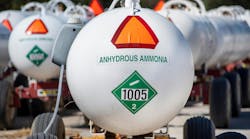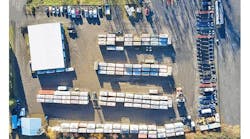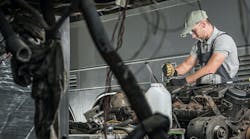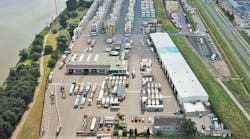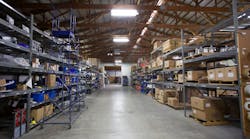“SUSTAINABILITY” is to the bulk truck distribution industry in 2010 as “Quality” was in 1990. It is the concept I have heard most discussed at recent meetings from representatives of major chemical and petroleum companies to those designing and providing the tractors you will purchase for years to come.
Like the quality movement, sustainability will be more than a “flavor of the month.” It also could be a productive avenue as our industry faces its greatest resource challenge - retaining and attracting qualified tank truck drivers.
There are many definitions of “sustainability” on the Internet, today's version of Webster's Dictionary. While many are long and detailed, I think this one succinctly captures the concept: Sustainability--An attempt to provide the best outcomes for human and natural environments both now and into the indefinite future.
I especially like this definition because it includes the human element as an equal factor in the sustainability equation. Much of the sustainability impact we have seen to this point focused on the “greening” of industry and has been as much a reaction to government action as to a sense of social responsibility or understanding the economic benefits to be achieved.
When I started working for this magazine in the 1970s, fleets would brag if they topped three miles per gallon of fuel. There was so much liquid hazardous waste being hauled by tank trucks in the 1980s that we dedicated the April issue to that topic. DOT-E waste tankers blossomed across the country. Eventually, and even reluctantly, industry found economic benefits in better fuel economy and less liquid waste production.
We must focus with as much dedication and “outside of the box” thinking to produce the same successes with our essential tank truck driver human resource as we have in the environmental and energy fields. By “we,” I mean carriers, shippers, consignees, regulators and fellow employees that impact the environment in which the tank truck driver is expected to operate safely and efficiently on every load.
It is not an exaggeration to say that the futures of the tank truck carrier industry and the shippers of the essential products we transport are dependent on how we sustain the corps of elite drivers our segment of the trucking industry requires. We must educate our shipper customers to include the tank truck driver as an essential resource as they develop their own sustainability strategies. The human footprint must be as important to them as their environmental footprint.
Here are the opening exchanges that I hope occur in every discussion between shippers and carriers in Y2011:
Carrier to Shipper- What are you willing to do to help me sustain my drivers? Where can I assist you in meeting that objective?
Shipper to Carrier- What are you doing to sustain your drivers? Where can I help?
Many recent conversations I have had with shippers at various venues encourage me to contend that enlightened shippers do know there is a tank truck driver challenge and that they can play an important role in finding solutions. Some already are planning what they might have to do if their freight remains in the storage tank due to a driver shortage. Many glimpsed such a future this past spring when some shipments were delayed because drivers weren't available.
For its part, National Tank Truck Carriers will focus on this issue with the same energy we gave to the tank truck rollover challenge. Tank Truck Driver Sustainability will be a topic of discussion at every meeting we do in 2011, and we hope to facilitate some high level carrier and shipper dialogue every chance we get.
We will explore the many reasons from demographics to pay to lifestyle that contribute to the shortage impacting the total supply of truck drivers both now and in the future. How can we skim the cream of that supply and make them want to be part of the elite corps of tank truck drivers? What will be the impact of the artificial reduction in driver productivity if driving time is reduced from 11 to 10 hours and the restart time extended? What can shippers do to help drivers be most productive in their primary task--driving?
What traditional paradigms must shift to broaden the supply of drivers? How should they be trained, treated, utilized and compensated? We know some of our members already have altered dispatch practices and found new ways to get drivers home more frequently. Truck drivers want to attend their kids' soccer games just as others do.
Making Y2011 the year we elevate executive attention to driver sustainability will require the efforts of everyone reading these words. As usual, members of National Tank Truck Carriers will carry the load for the entire tank truck industry. If you are not currently a member, please join your carrier peers to make your industry association a stronger voice on this issue with the many publics that must help us to succeed.
If you have ideas on how to make this work or would like to be involved, please contact me at [email protected]. Remember, the shippers and carriers that have the drivers will win in the marketplace! Let's all commit to make Y2011 The Year of Tank Truck Driver Sustainability.
Conley is president of National Tank Truck Carriers Inc.
